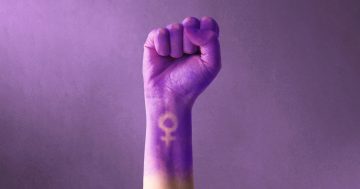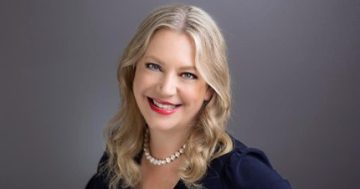
Real diversity should go beyond stock-image optics and result in tangible, meaningful change. Photo: Canva.
It’s one of those words that seems to be dripping from the mouths of every progressive-minded or savvy professional with a LinkedIn profile – the need for ‘diversity’, in leadership, in government, on boards and in our national identity. Diversity of gender, sexuality, race and culture, ability, experiences, all of it.
Gone are the days of boardroom photos, advertising or corporate marketing materials that only feature white men and fail to recognise the many other groups that make up our communities.
Although some will undoubtedly continue to question its merit, the concept of diversity is necessary.
The power structures in our society have been skewed towards white men for too long, and the need to have representation from different parts of our communities to ensure equality and inclusion makes sense. But while that sounds good in theory, what it looks like in practice is harder to pin down.
If anything, focusing on ‘diversity’ has made it quite easy for organisations and governments to ‘brown/pink wash’ their images by bunging more women and people of colour and others into their photoshoots without meaningfully addressing inequality in their organisations.
As long as we keep the conversation centred around ‘diversity’, we’re also reinforcing the assumption that the majority is white and male, which is the starting point to diversify from. This centres on the dominant existing power structures and only allows minorities to participate from the margins.
So maybe it’s time we stepped away from diversity and set our aim higher?
It wasn’t that long ago that our understanding of inequality in Australia was nascent, and calling out sexism, racism, homophobia and other forms of discrimination was a risky and difficult thing to do. Sticking your neck out to stand up for equality meant being labelled as a troublemaker, argued with, and told that you were ‘too sensitive’.
While identity politics and political correctness are bemoaned by conservatives for supposedly destroying our ability to have any fun, those of us who didn’t find the dominant sexist, racist, homophobic context to actually be that much fun are grateful for the progress that has been made. But now that we’re further down the track in moving towards a more equal and inclusive society, is it time to move beyond ‘diversity’ towards economic, social and political equality, and demand more from the systems that hold power?
When we talk about diversity, we do two things: first of all, we suggest that the only problem at hand is a lack of people from different identity groups in the room; secondly, we place the onus and responsibility on those people to represent their entire communities despite them remaining in the minority. It’s a neat way of escaping any responsibility for the injustices that have benefited the status quo, and it means that once visible diversity is achieved, no further action is required.
Suppose we recognised that diversity is just the very first step in the process. In that case, we could call for meaningful change for equality that would benefit more than the small group of individuals chosen to represent their demographics in leadership positions.
For example, what if, instead of only asking for more women on boards, we asked companies to also implement gender equality policies that include comprehensive parental leave offerings and domestic violence leave entitlements?
Or what if instead of only wanting to see healthcare providers show non-white patients in their corporate branding and advertising, we also lobbied for more funding to be made available to translating and interpreting services to ensure patients who have lower English-speaking skills are getting the care they deserve?
Or what if instead of demanding that a company implement an LGBTQIA+ network for staff and leaving it at that, we also asked for the provision of gender-neutral bathrooms in all corporate offices? These tangible changes will make a difference to people’s actual experiences on a day-to-day basis and go beyond feeling represented in media and imagery.
We’ve reached a point where people largely accept that a lack of diversity is a problem – but now it’s time for us to ensure that the solution goes beyond optics and towards tangible, meaningful change.





















